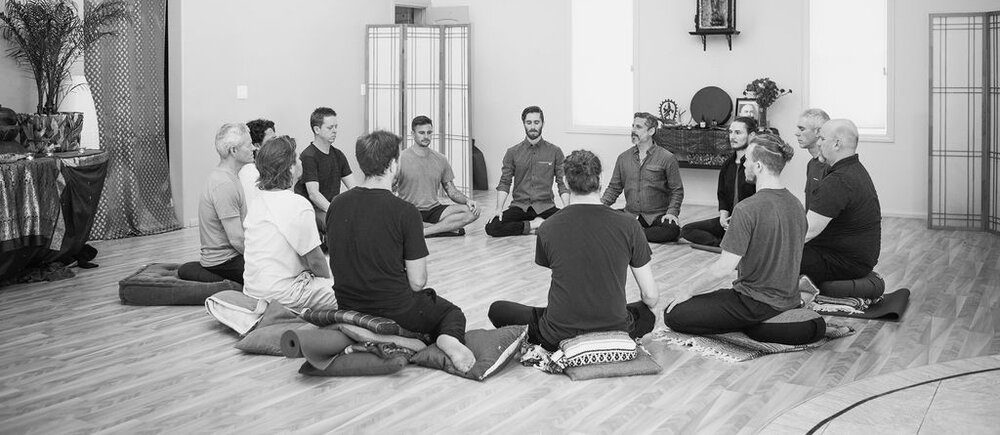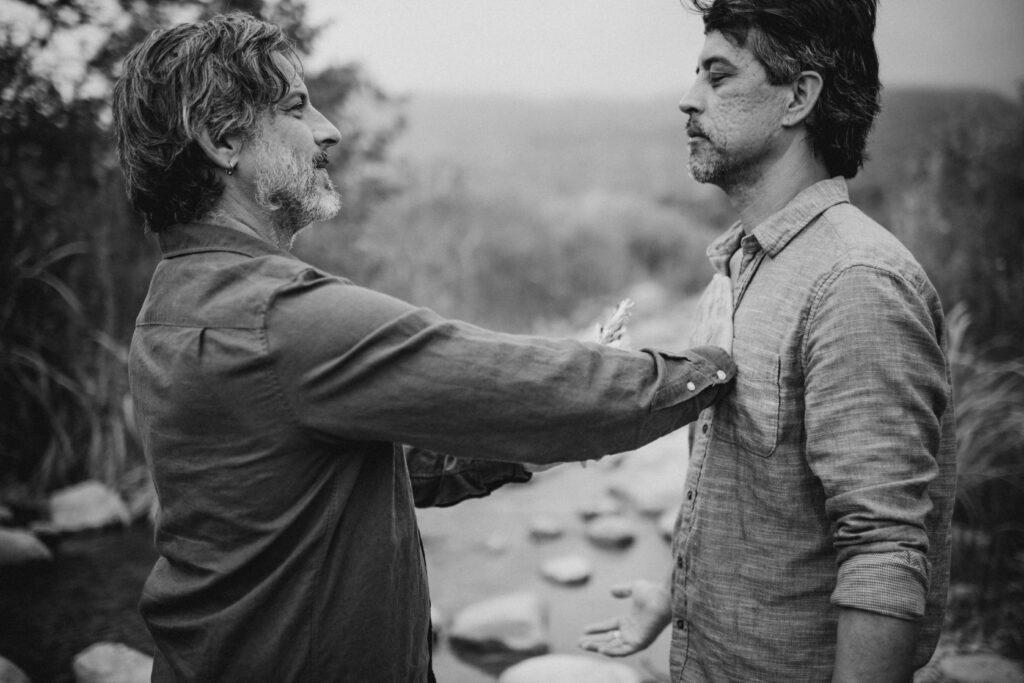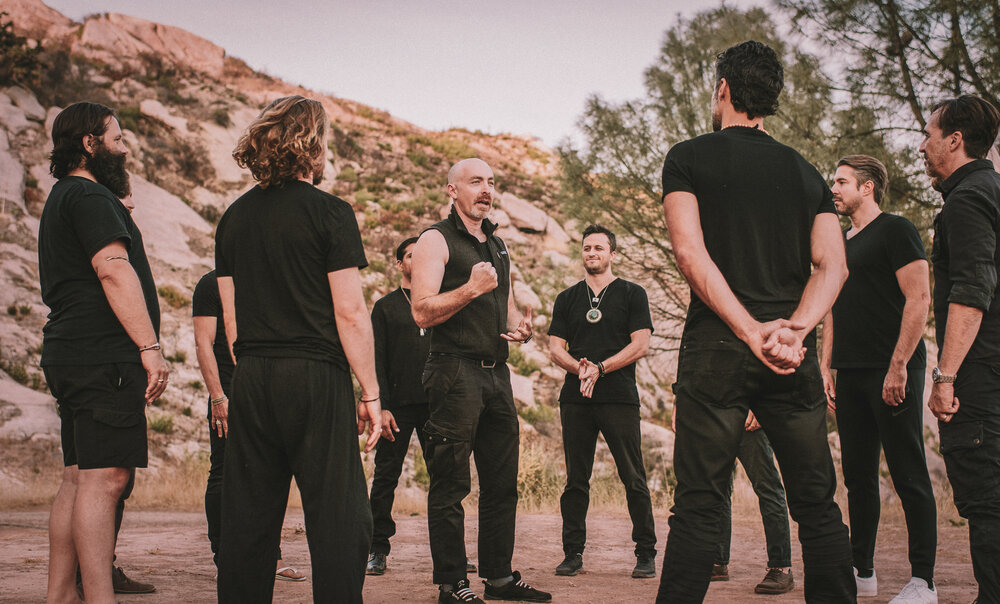No two relationships are identical.
No cookie-cutter approach works for every relationship challenge because we all bring our unique blend of ideas, desires, intentions, and wounds to the table.
AND…
There are universal themes that almost every man I’ve encountered can relate to.
Here’s a BIG ONE:
A conflict or upset arises in your intimate relationship. You get emotionally triggered, shut down, get quiet, stop looking in their eyes, and become disconnected and closed-off.
Maybe you’re aware that you feel shut down but don’t care because you feel hurt. Your shutdown and closure may occur for an hour or several hours, or it could go on for days if you’re not careful.
When you go into full-on shutdown, you’re doing what Dr. John Gottman calls ‘”stonewalling.” He describes stonewalling as “when the listener withdraws from the interaction, shuts down, and simply stops responding to their partner.”
Dr. Gottman has been able to predict divorce with high accuracy, and he looks at this stonewalling tactic as one of the major correlative factors.
While this isn’t a male-only reaction, it is more common for men to become emotionally aloof when an upset occurs.
Men use stonewalling as a tactic to deal with being emotionally overwhelmed, fears of rejection, abandonment, and in any situation where there is a perceived threat. Your tender, bruised heart uses this as a general protection mechanism from getting (more) hurt.
Stonewalling can be more than just an armoring of the heart and the wounded inner child trying to avoid pain – it can also be a power play.
It’s one thing to react with stonewalling in a conflict as a way to protect yourself from further hurt, but then there are the times when that stone wall comes up as a screw you and as a way to get the upper hand in the relationship somehow. This is a power play.
Are you using stonewalling as a power play or control tactic to achieve some objective?
Let’s look at it. What are you trying to achieve?
~ Are you trying to make them think you don’t need them, so you somehow have the upper hand?
~ Are you withholding love as a punishment?
~ Are you trying to make them feel crappy about something they did so you can feel less crappy about the thing you did?
~ Are you trying to lay on a guilt trip to distract from your shortcomings and gain an edge?
Power plays are passive-aggressive. They are mind games you use on your partner. You may use them to punish, to get the upper hand, or to control.
But underneath your power play is pain!
Power plays are rooted in our instinct for self-preservation.
They are attempts to avoid or protect from a perceived threat.
These are, of course, rooted in the BIG fear we all share – the fear of not being loved.
Ok, while what I’ve just shared is true, these lofty psychological concepts may not help you shift.
When you shut down and use your closure as a power play, you create more of what you don’t want.
Your mind may tell you, “Yeah, I’ll show them; they’ll see. I’m not going to love them, and I’m not going to let them love me.”
Look, It’s ok to be closed.
It’s ok to shut down and feel fear, sadness, frustration, or anger.
Absolutely be with it, sit with it, but be careful not to use it as manipulation and get stuck in it out of habit because power plays don’t work to achieve your actual objective, which is to love and be loved.
A harsh truth about the power play is that it makes you less trustable. It’s showing that you can’t handle your own emotions and if you have a feminine partner, what makes you trustable is that you can manage emotions, both your own and theirs.
Doing a power play doesn’t mean you’re a manipulative or cruel man. It just means that you’re hurt. As the saying goes, “hurt people hurt people.”
Your ability to transform the power play into repair depends on your willingness and capacity to shift yourself out of the shutdown habit.
Sometimes we can’t do this alone. It can be so powerful to receive the support of a wise and enlightened friend or relationship coach to hold a powerful space for your healing and offer the compassion, reflection, and feedback needed for your transformation.
Here are a few crucial tips to play with:
- Pause to self-soothe: This is a BIG first step! Spend a few moments alone, and feel what you’re feeling, don’t deny what emotions are up for you. Do things that can help to soothe and regulate your nervous system. Self-soothing can include positive self-talk “I’m upset right now, and I’ll make it through.” Acknowledge your positive traits, do deep breathing practice, call someone that cares for you, etc. If you do nothing else, do this!
- Solo bravery moment: Take responsibility for your stuff, for the stories you tell yourself about yourself, and the blaming stories you are holding onto about your partner.
- Commune: Communicate your feelings to your partner without blaming. The road to salvation begins with kind communication about what you feel, not what you think is wrong with them. Be kind to each other.
- Requests, not complaints: It’s much more digestible to receive a behavior-change request from our partner rather than spin out into whining and complaining.
- Commit: If your ultimate goal is more connection with your partner, make a powerful commitment to yourself to NOT using the wall of stone power play. Write it your commitment, speak it out, and write a firiggin’ eulogy for your powerplay habit if you need to.
If you’re more invested in winning the power play, you probably will win, but the relationship won’t.
Be more invested in kindness, repair, healing, and transforming yourself and your patterns.
Your love and connection can still thrive as long as you’re both willing to be kind and show loving-kindness to each other through the conflict.







